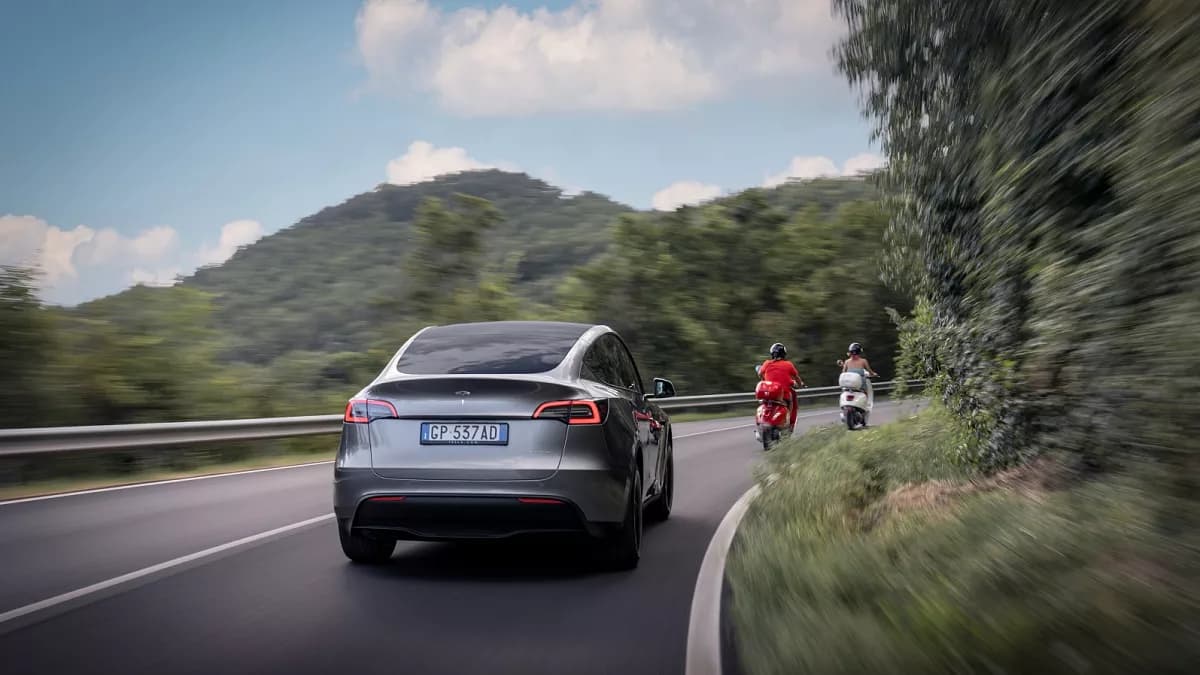We're loading the full news article for you. This includes the article content, images, author information, and related articles.
A public dispute between Tesla and the Dutch vehicle authority (RDW) over the approval timeline for its Full Self-Driving software complicates its European rollout, a development with long-term implications for autonomous vehicle regulation

A public disagreement has erupted between U.S. electric vehicle manufacturer Tesla and the Dutch road transport authority, RDW, over the approval status of Tesla's 'Full Self-Driving' (FSD) software in the European Union. The dispute casts uncertainty on the timeline for the technology's deployment across Europe and highlights the stringent regulatory hurdles facing advanced driver-assistance systems globally.
The controversy began after Tesla's Europe and Middle East account posted on the social media platform X over the weekend, claiming the RDW had “committed to granting Netherlands National approval in February 2026.” Following this announcement, Tesla encouraged its followers to contact the Dutch regulator to express their support.
However, the RDW swiftly refuted Tesla's assertion. In a statement issued on Monday, 24 November 2025, the Dutch authority clarified that no such commitment has been made. The agency stated that it has only established a schedule with Tesla to demonstrate the FSD system's compliance with safety standards in February 2026. "Whether this timeline will be met is yet to be determined in the coming period," the RDW statement read, emphasizing that "road safety remains the RDW's top priority: approval is only possible once the safety of the system has been convincingly demonstrated."
The regulator also took the unusual step of asking the public to stop contacting them regarding the matter, noting that the influx of messages was consuming customer service resources and would have no bearing on the outcome of the technical evaluation.
Tesla's strategy appears to centre on securing a national exemption in the Netherlands, which could then be recognized by other EU member states, potentially accelerating a continent-wide rollout. The company has argued that some current European regulations are "outdated" and that modifying FSD to comply would compromise its safety and usability. This approach, however, hinges on the cooperation of national bodies like the RDW, which now appears strained.
The European Union has been developing a comprehensive legal framework for automated vehicles, with Regulation (EU) 2022/1426, which entered into force in August 2022, laying down uniform procedures for the type-approval of automated driving systems. These regulations are informed by standards set by the United Nations Economic Commission for Europe (UNECE), which is working towards a globally harmonized regulation for Automated Driving Systems by mid-2026. The public contradiction by the RDW underscores the meticulous and evidence-based approach European regulators are taking, prioritizing safety over speed.
This cautious stance is mirrored by regulatory scrutiny in other parts of the world. In the United States, the National Highway Traffic Safety Administration (NHTSA) is conducting significant safety probes into Tesla's Autopilot and FSD systems following numerous reported incidents.
While Tesla does not have an official dealership presence in Kenya or the wider East African region, its vehicles are available through third-party importers. The first Tesla, a Model X, arrived in Kenya in 2020, and interest in the brand is growing. The cost of importing a Tesla remains high, with a Model 3 starting at approximately KES 9.9 million on-road after taxes. Despite the cost, the regional electric vehicle market is expanding rapidly, driven by government incentives, rising fuel costs, and environmental concerns.
Kenya aims for 5% of all vehicle sales to be electric by the end of 2025 and is investing in charging infrastructure. East Africa has become a hub for e-mobility innovation, attracting significant investment. The developments in European regulations for advanced driver-assistance systems like FSD are therefore highly relevant. As the Kenyan and East African EV markets mature, the safety standards and regulatory frameworks established in jurisdictions like the EU will inevitably influence local policies.
The current dispute between Tesla and the RDW serves as a critical case study for global regulators, including those in emerging markets like Kenya. It highlights the complexities of validating the safety of AI-driven vehicle systems and the potential for friction between ambitious technology companies and cautious safety authorities. The outcome of Tesla's FSD approval process in Europe will likely set important precedents for how such technologies are evaluated, approved, and deployed worldwide, impacting the future of transportation safety and innovation from Brussels to Nairobi.
Keep the conversation in one place—threads here stay linked to the story and in the forums.
Sign in to start a discussion
Start a conversation about this story and keep it linked here.
Other hot threads
E-sports and Gaming Community in Kenya
Active 9 months ago
The Role of Technology in Modern Agriculture (AgriTech)
Active 9 months ago
Popular Recreational Activities Across Counties
Active 9 months ago
Investing in Youth Sports Development Programs
Active 9 months ago